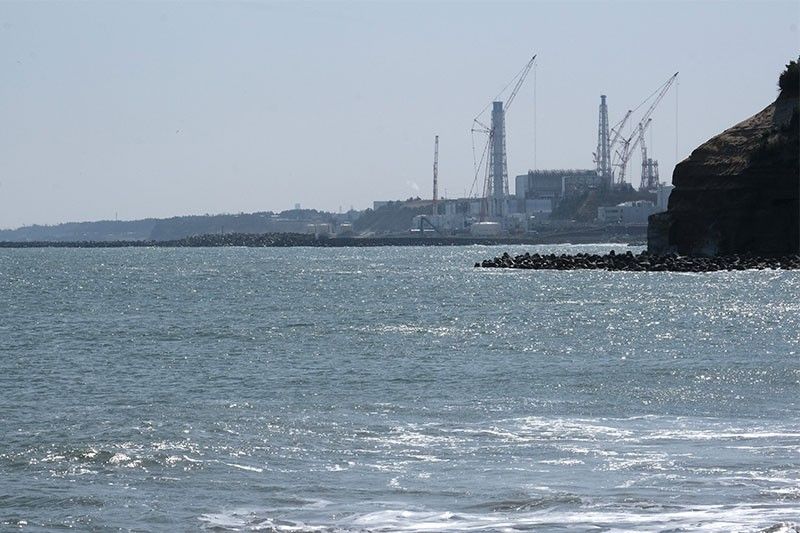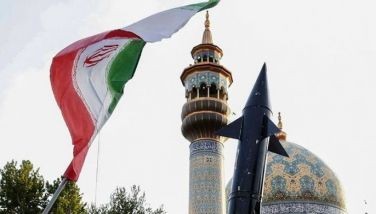Japan to release treated Fukushima water into the sea

TOKYO, Japan — Japan will release more than a million tonnes of treated water from the stricken Fukushima nuclear plant into the ocean, the government said Tuesday, despite concern from neighbouring countries and fierce opposition from local fishing communities.
The process is not likely to begin for several years and could take decades to complete, but it has already stirred significant controversy at home and abroad.
Japan's government argues the release is safe because the water is processed to remove almost all radioactive elements and will be diluted.
The International Atomic Energy Agency (IAEA) has endorsed the release, which it says is similar to disposal of waste water at nuclear plants elsewhere in the world.
Japan's Prime Minister Yoshihide Suga told a ministerial meeting that disposing of the water was an "inevitable task" in the decades-long process of decommissioning the nuclear plant.
He said the release would happen only "after ensuring the safety levels of the water" and alongside measures to "prevent reputational damage".
Around 1.25 million tonnes of water has accumulated in tanks at the nuclear plant, which was crippled after going into meltdown following a tsunami in 2011.
It includes water used to cool the plant, as well as rain and groundwater that seeps in daily.
An extensive pumping and filtration system known as "ALPS (Advanced Liquid Processing System)" extracts tonnes of newly contaminated water each day and filters out most radioactive elements.
But local fishing communities fear releasing the water will undermine years of work to restore confidence in seafood from the region.
"They told us that they wouldn't release the water into the sea without the support of fishermen," Kanji Tachiya, who heads a local fisheries cooperative in Fukushima, told NHK ahead of the announcement.
"We can't back this move to break that promise and release the water into the sea unilaterally."
Tomoaki Kobayakawa, president of plant operator TEPCO, said it would "take thorough measures to prevent bad rumours" affecting local industries.
Greenpeace slams decision
But the decision sparked regional opposition even before it was official, with South Korea's foreign ministry on Monday expressing "serious regret" and China's foreign ministry spokesman Zhao Lijian urging Japan to "act in a responsible manner".
The US State Department however said Tuesday that Japan had been "transparent about its decision, and appears to have adopted an approach in accordance with globally accepted nuclear safety standards".
Debate over how to handle the water has dragged on for years, as space to store it at the site runs out.
A government panel earlier endorsed either diluting the treated water and releasing it into the ocean or releasing it as vapour, and the IAEA says either option is acceptable.
"Releasing into the ocean is done elsewhere. It's not something new. There is no scandal here," IAEA director general Rafael Mariano Grossi said last year.
Either method would be "in line with well-established practices all around the world", he added.
Anti-nuclear activist group Greenpeace slammed Japan's government for having "once again failed the people of Fukushima".
"The cabinet's decision failed to protect the environment and neglected the large-scale opposition and concerns of the local Fukushima residents, as well as the neighbouring citizens around Japan," said climate and energy campaigner Kazue Suzuki.
The ALPS filtration process removes most radioactive elements from the water, but some remain, including tritium.
Government spokesman Katsonobu Kato said Tuesday that the water would be diluted to contain tritium at levels far below either domestic or WHO standards, with the IAEA monitoring the process.
Experts say the element is only harmful to humans in large doses and with dilution the treated water poses no scientifically detectable risk.
"There is consensus among scientists that the impact on health is minuscule," Michiaki Kai, an expert on radiation risk assessment at Japan's Oita University of Nursing and Health Sciences, told AFP before the decision was announced.
But lawyers and local plaintiffs who have filed class action lawsuits for damages against TEPCO and the government demanded the "immediate withdrawal" of the decision in an angry statement.
"Releasing the water into the ocean will return to haunt us," they said.
- Latest
- Trending





























